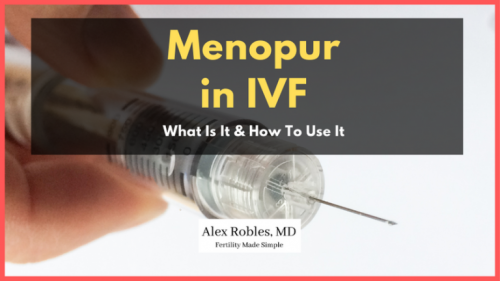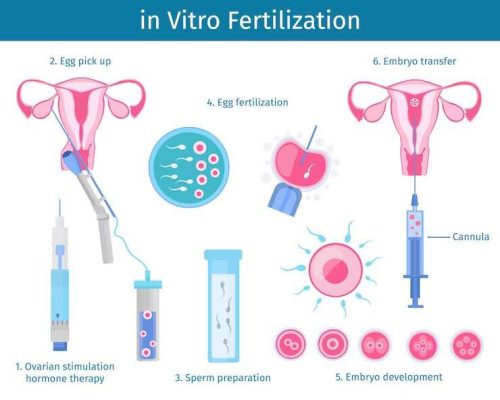
Polycystic Ovary Syndrome and Infertility: What I Learned on My Journey
When I first found out that I had Polycystic Ovary Syndrome (PCOS), I didn’t really understand the full impact it would have on my fertility. I was just 28, had been in a long-term relationship, and was excited about the idea of becoming a mom someday. But after months of trying to get pregnant without success, I began to realize something wasn’t right.

Discovering PCOS: The Silent Struggle
I had always known that my periods were irregular. Sometimes I’d go months without getting one, and other times, I’d have a period that seemed to last forever. But I never thought much of it until we started trying to conceive. That’s when the frustration really set in.
After some basic testing, my doctor diagnosed me with PCOS. I remember sitting in the doctor’s office, feeling overwhelmed and confused. “What does this mean for me?” I asked. “Will I ever be able to have a baby?”
Dr. Sarah Jenkins, an OB-GYN who specializes in fertility, explained it to me simply: “PCOS is one of the most common causes of infertility. It affects hormone levels, egg production, and can lead to irregular ovulation. That’s why it can be harder for women with PCOS to conceive.”
It was a lot to take in, but it explained why I wasn’t ovulating regularly. The cysts on my ovaries were interfering with the normal release of eggs, which meant my chances of getting pregnant naturally were significantly lower.

What Does PCOS Do to Your Fertility?
PCOS isn’t just about irregular periods. It’s a hormonal imbalance that impacts several aspects of your reproductive health. For women like me, it means:
- Irregular or absent ovulation: Without regular ovulation, it’s difficult to get pregnant.
- Increased levels of androgens (male hormones): This can cause symptoms like excess hair growth, acne, and thinning hair.
- Polycystic ovaries: These cysts are immature eggs that don’t develop or release properly.
I learned that PCOS was a major barrier to conception, and I wasn’t alone. According to Dr. Jenkins, “About 1 in 10 women of reproductive age have PCOS, but many of them don’t even know they have it. The good news is that there are effective treatments to manage PCOS and improve fertility.”

My Treatment Journey: Finding a Way Forward
After my diagnosis, I went through a range of treatments to manage my PCOS and increase my chances of getting pregnant. For many women with PCOS, lifestyle changes can help regulate hormones. I began eating a healthier diet and exercising more regularly, which helped me lose some weight and improve my insulin sensitivity.
But after six months of trying on my own, I knew I needed more help. My doctor recommended Clomid (clomiphene citrate), a medication that stimulates ovulation. I wasn’t thrilled about taking medication, but I was willing to try anything. After a few cycles, I was finally ovulating regularly, but I still wasn’t pregnant.
That’s when Dr. Jenkins suggested that I try Intrauterine Insemination (IUI). The idea was to bypass some of the challenges my PCOS was presenting by giving my eggs a better chance of fertilization. I was anxious but hopeful.
The Turning Point: IVF and Success
Unfortunately, after two rounds of IUI, I still wasn’t pregnant. It was a hard blow, but I refused to give up. My fertility doctor then recommended we move on to In vitro fertilization (IVF). While IVF sounded intimidating, I was ready to take the next step.
Dr. Jenkins reassured me, saying, “With PCOS, IVF can be a very effective option because we can control the stimulation of your ovaries to ensure a higher number of mature eggs. We also monitor the quality of the embryos before implantation.”
The IVF process was intense. It involved several weeks of hormone injections to stimulate my ovaries. But the reward came at the end: we retrieved several eggs, fertilized them in the lab, and transferred one healthy embryo back into my uterus. A few weeks later, I took a test, and the result was a faint but undeniable positive. I was pregnant!
Key Takeaways for Others Struggling with PCOS and Infertility
Looking back on my journey with PCOS and infertility, there are a few things I wish I’d known and a few pieces of advice I’d give to anyone going through this:
- Don’t wait too long to seek help – PCOS can cause long-term infertility if untreated, so if you’re having trouble conceiving, don’t wait to get evaluated.
- Lifestyle changes matter – Diet, exercise, and stress management can improve your overall health and make a big difference in managing PCOS. In my case, losing weight and improving my insulin sensitivity helped me start ovulating again.
- Medications can work – Clomid, metformin, and other medications are often the first line of treatment for women with PCOS. They’re not a guarantee, but they do help many women conceive.
- IVF may be necessary – If other treatments don’t work, IVF can be an effective option. The process is intense, but it can provide a higher chance of success, especially for women with PCOS.
- Embrace the emotional support – Fertility struggles can be emotionally draining. Seek support from family, friends, or a counselor. You don’t have to go through this alone.
Final Thoughts
PCOS is a challenge, but it doesn’t have to define your fertility journey. With the right treatment and a little patience, many women with PCOS go on to have healthy pregnancies. My story may not be the same as yours, but I hope it gives you hope that there’s a way forward. Don’t give up—there are options, and there are people who will support you every step of the way.




